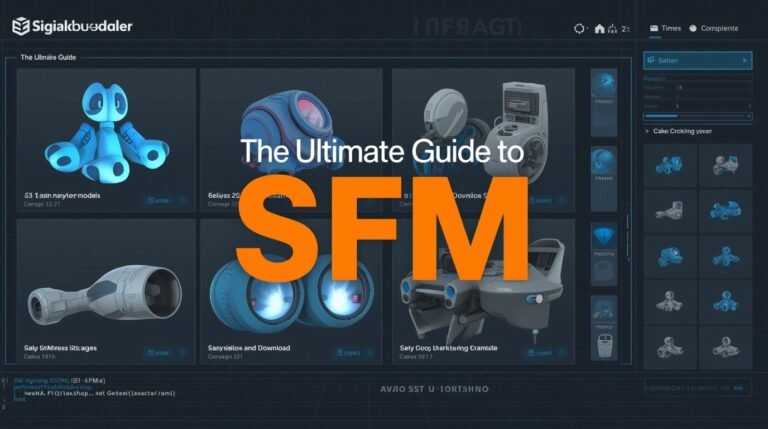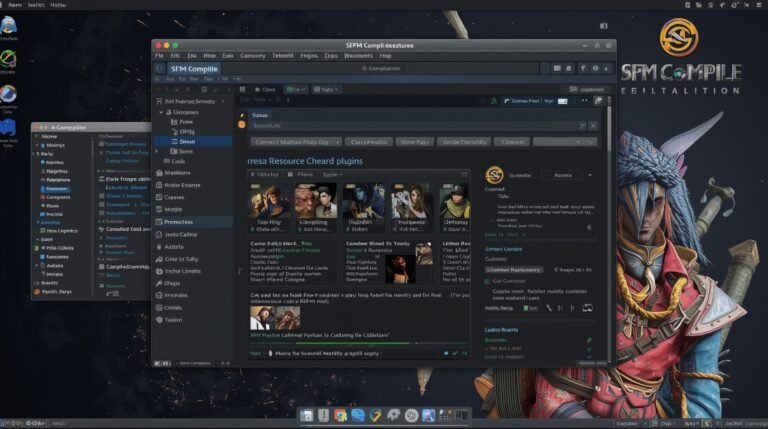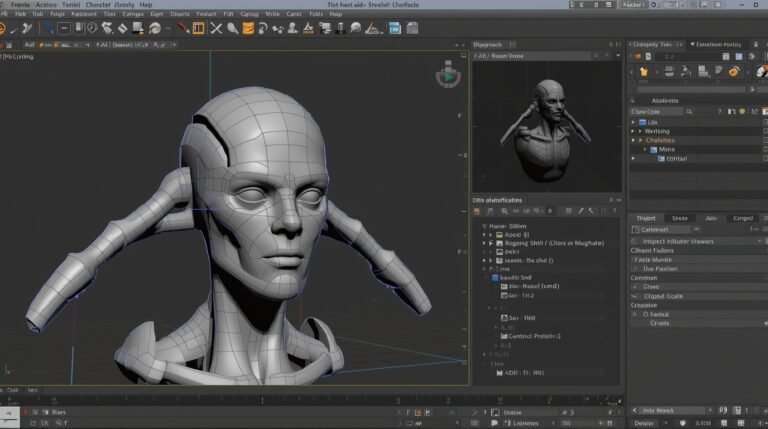Sfm Compile: Key Features of SFMCompile
The Ultimate Tool for Source Filmmaker Asset Management
If you’re working with Source Filmmaker (SFM), you know how demanding asset preparation can be. Converting models, integrating textures, compiling animations, and handling errors — these tasks can eat up hours of your time.
That’s where SFM Compile steps in.
Whether you’re a solo animator or part of a game dev team, SFM Compile helps you streamline and optimize every step of your content pipeline. In this guide, we’ll explore the key features that make SFM Compile a must-have tool, explain how to use each one, highlight the benefits, and help you troubleshoot common issues.
Let’s dive in.
1. Batch Compilation
What It Does
Batch compilation allows you to compile multiple models, textures, and animations at once. Instead of repeating the same task for every file, you can queue everything up and compile it in one go.
How to Use
-
Create a folder containing all your
.QCscripts and model source files. -
Open your compiler tool (e.g., Crowbar or a custom SFM Compile UI).
-
Select Batch Compile Mode or use a command like:
-
The tool will process each file automatically.
Benefits
-
Saves time and energy, especially on large projects.
-
Avoids manual repetition and reduces chances of human error.
-
Perfect for when you’re exporting multiple characters, props, or scenes.
Common Errors
| Error | Cause | Solution |
|---|---|---|
| Missing QC file | File naming issue | Check filenames and directory |
| Compilation fails midway | Incorrect model hierarchy | Inspect each file individually |
2. Custom Settings
What It Does
With Custom Settings, SFM Compile allows you to tweak how each asset is handled—like adjusting paths, setting compression levels, modifying skeleton handling, or controlling shader types.
How to Use
-
Open your
.QCfile and define custom commands: -
Use GUI tools like Crowbar or compile via command line with flags:
Benefits
-
Tailors your assets to specific project needs.
-
Makes it easy to reorganize folders or change output formats.
-
Reduces file size with custom compression settings.
Common Errors
-
Wrong scale/position: Double-check the
$scaleand origin settings. -
Material paths not linking: Ensure paths match your SFM directory structure.
3. Detailed Error Logs
What It Does
Each time you compile, SFM Compile generates logs that show exactly what happened — successful exports, missing files, rigging issues, texture conflicts, and more.
How to Use
-
Compile your model.
-
Find the
.logfile generated (usually in the same folder or a logs subdirectory). -
Open it in a text editor and look for warnings or errors.
Benefits
-
Helps you pinpoint issues quickly.
-
Saves hours of guesswork and re-exporting.
-
Great for troubleshooting rigs, weights, and materials.
Common Errors
| Log Message | Meaning | Fix |
|---|---|---|
| “Too many bone weights” | Mesh is over-rigged | Limit weights per vertex |
| “File not found” | Broken path | Check QC paths or file extensions |
4. Command Line Interface (CLI)
What It Does
SFM Compile supports a Command Line Interface, letting advanced users run scripts, automate processes, and integrate the tool into other pipelines or CI workflows.
How to Use
You can run SFM Compile (or the underlying tools like studiomdl) via command line:
Or use batch scripting to compile many models:
Benefits
-
Offers full control over compilation.
-
Ideal for automation and large-scale projects.
-
Great for power users who want to write scripts for asset builds.
Common Errors
-
Permission issues: Run the command prompt as administrator.
-
Script errors: Check syntax and file permissions.
5. Asset Optimization
What It Does
SFM Compile includes options to optimize models by reducing polygon count, compressing textures, and trimming unused bones or animations — improving load times and performance.
How to Use
-
In your 3D software:
-
Decimate high-poly models before export.
-
-
In your
.QCfile:-
Use
$staticpropfor props that don’t move. -
Exclude unused sequences.
-
-
Texture side:
-
Convert images to
.VTFwith DXT5 compression using VTFEdit.
-
🌟 Benefits
-
Faster rendering in SFM.
-
Smaller file sizes and better memory usage.
-
Smoother playback and editing.
Common Errors
-
Visual artifacts: Over-compression of textures.
-
Missing animations: Don’t remove sequences that are still referenced.
6. Cross-Format Compatibility
What It Does
SFM Compile can handle input from a variety of 3D file formats including:
-
.FBX -
.OBJ -
.SMD -
.DMX
This makes it easy to import models from popular tools like Blender, Maya, and 3DS Max.
How to Use
-
Export your model in the supported format:
-
Blender: Use Blender Source Tools (export as
.SMDor.DMX) -
Maya: Use Valve’s SMD Exporter plugin
-
3DS Max: Use Wall Worm plugin
-
-
Compile with your preferred tool (Crowbar, studiomdl, or a batch script).
Benefits
-
Use your favorite modeling software.
-
Don’t need to manually convert between formats.
-
Preserves quality and rigging fidelity across tools.
Common Errors
-
Wrong scale: Adjust export scale to match Source engine units.
-
Inverted normals: Recalculate normals in the 3D app before exporting.
How to Install & Extract SFM Compile Tools
Required Tools:
| Tool | Purpose | Download |
|---|---|---|
| Crowbar | GUI for compiling models | https://crowbar.steamdb.info/ |
| VTFEdit | Texture conversion | https://developer.valvesoftware.com/wiki/VTFEdit |
| Blender Source Tools | Export models from Blender | https://developer.valvesoftware.com/wiki/Blender_Source_Tools |
Steps:
-
Download and install Crowbar.
-
Set the game directory to your SFM
gamefolder. -
Load your
.QCfile and click “Compile”. -
Use VTFEdit to convert PNGs/JPGs to
.VTF. -
Place
.VTFand.VMTfiles in the correctmaterialsfolder.
Final Thoughts
SFM Compile is more than just a tool it’s a workflow accelerator. Whether you’re working with dozens of characters or a single cinematic scene, it handles the heavy lifting of preparing assets for Source Filmmaker.
From batch processing to error logging, from cross-format support to deep customization, SFM Compile offers a complete toolkit for animators and modelers alike.





